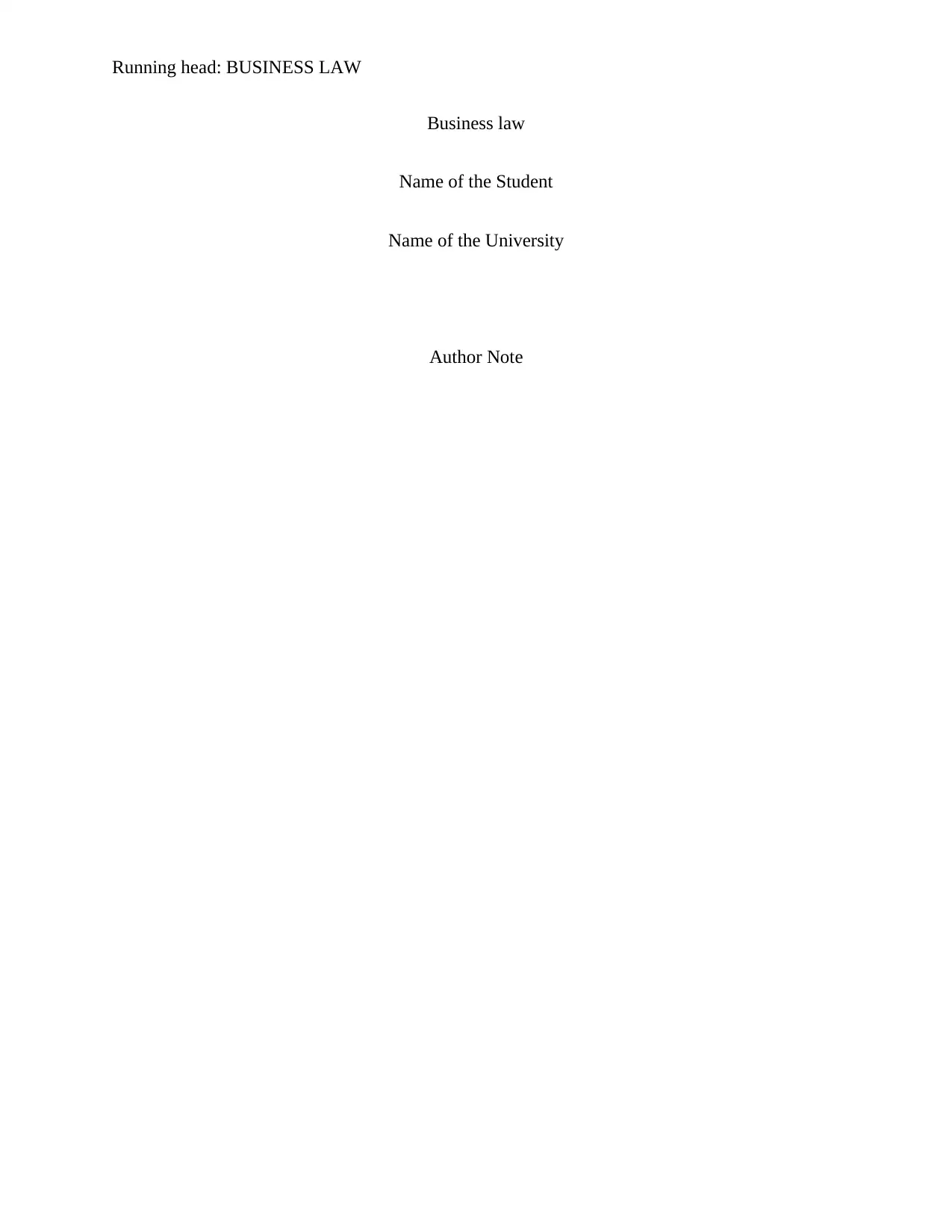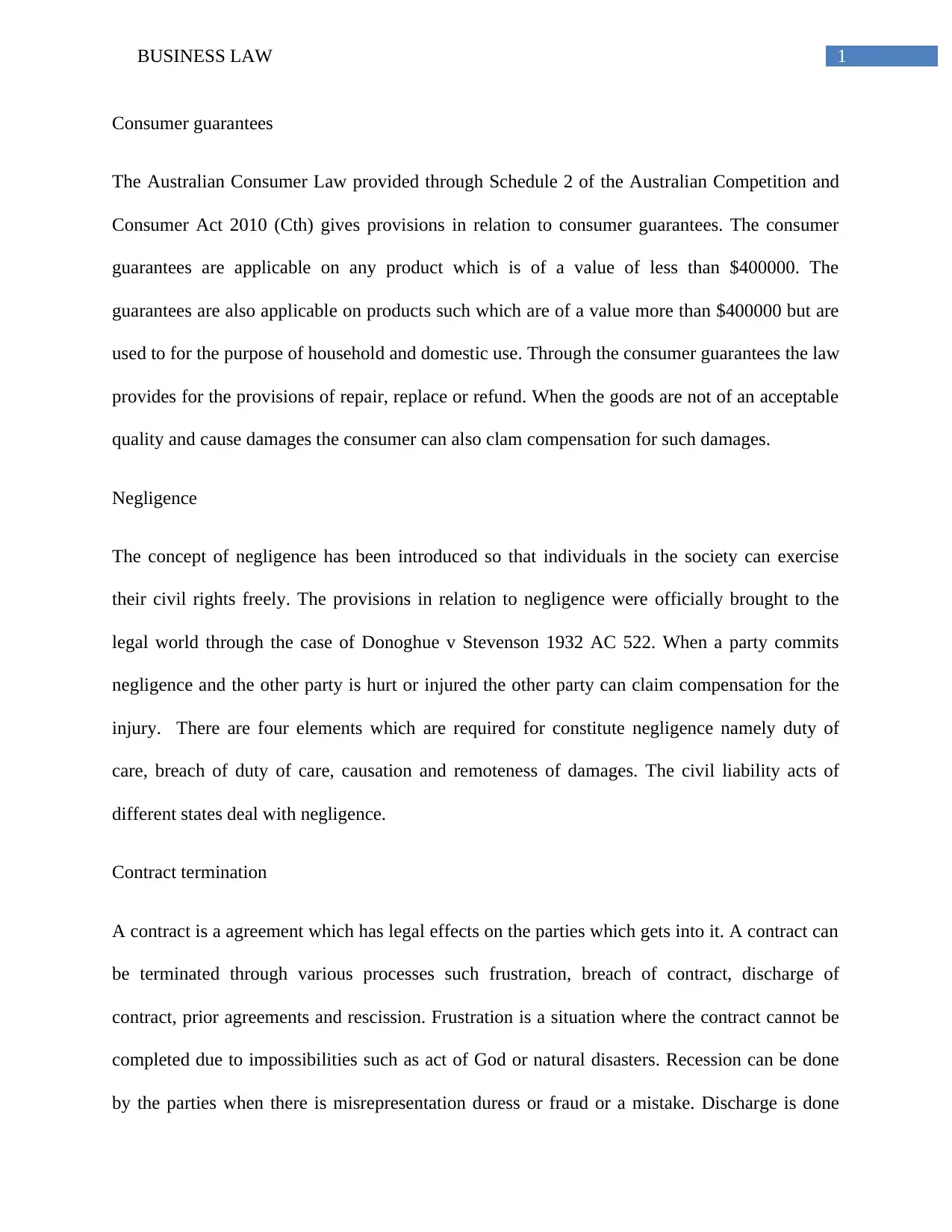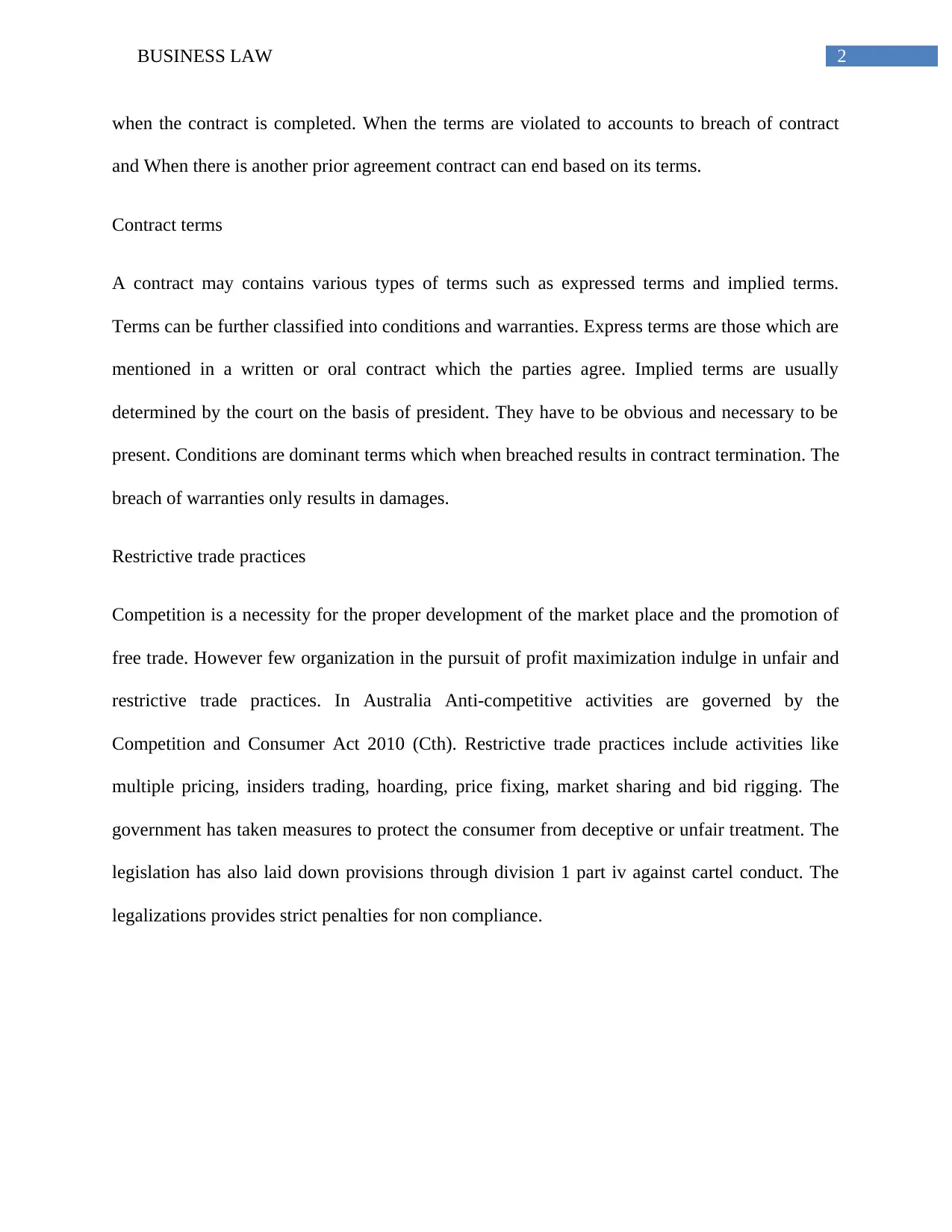Business Law Report: Consumer Guarantees, Negligence, Contracts
VerifiedAdded on 2020/05/04
|3
|573
|69
Report
AI Summary
This business law report provides an overview of several key areas within the field. It begins with an examination of consumer guarantees under Australian law, including the application of these guarantees and the remedies available to consumers. The report then delves into the concept of negligence, outlining the elements required to establish a claim and referencing relevant case law. The discussion extends to contract law, covering contract termination through various methods such as frustration, breach, and rescission, along with the different types of contract terms, including conditions and warranties. Finally, the report addresses restrictive trade practices, explaining anti-competitive activities governed by the Competition and Consumer Act 2010, and the government's measures to protect consumers from unfair treatment. The report aims to provide a comprehensive understanding of these core business law principles.
1 out of 3










![[object Object]](/_next/static/media/star-bottom.7253800d.svg)